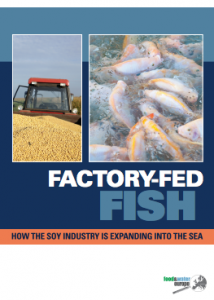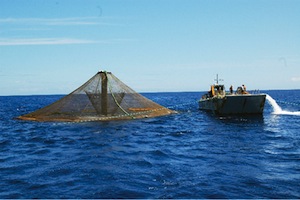International Groups call on Panamanian Government to Correct Flaws in Regulatory Oversight
Washington, D.C.—AquaBounty’s experimental production facility of genetically engineered (GE) salmon in Panama is missing multiple legally required permits and inspections, including a wastewater discharge permit, according to an administrative claim filed today in Panama by the environmental group Centro de Incidencia Ambiental de Panama (CIAM).
Food & Water Watch, Center for Food Safety and Friends of the Earth were part of an international coalition of groups who supported CIAM’s administrative claim by submitting a letter to Panamanian authorities today, which raises serious questions regarding AquaBounty’s ability to comply with basic environmental regulations.
“These allegations suggest a dangerous pattern of non-compliance and mismanagement by AquaBounty, raising the likelihood of an environmentally damaging escape of these fish,” said George Kimbrell, senior attorney for Center for Food Safety. “This news further undermines the empty assurances that AquaBounty and the Food and Drug Administration have given the public and suggests that Panama’s environmental laws may have also been broken.”




 Offshore aquaculture is factory fish farming of the sea, growing fish in huge, often over-crowded cages out in ocean waters. It can be problematic for both the environment and the economy. The waste – fecal matter, uneaten food, and any chemicals or drugs used in the operation – flows directly into the ocean, and the result could be long-term damage to the seafloor. Despite its negative impacts, the following groups push for, or would profit from, factory fish farming in the United States and Europe.
Offshore aquaculture is factory fish farming of the sea, growing fish in huge, often over-crowded cages out in ocean waters. It can be problematic for both the environment and the economy. The waste – fecal matter, uneaten food, and any chemicals or drugs used in the operation – flows directly into the ocean, and the result could be long-term damage to the seafloor. Despite its negative impacts, the following groups push for, or would profit from, factory fish farming in the United States and Europe.